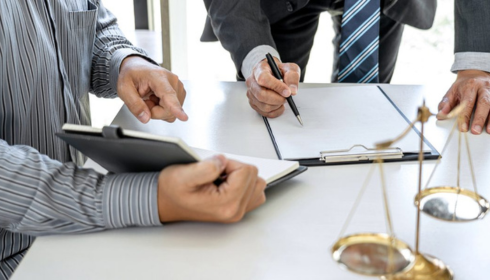In an age where technology slips into every corner of our lives, disputes don’t just happen in boardrooms or courtrooms anymore—they spill into data centers, cloud servers, and even mobile apps. The rise in digital conflicts has created a quiet but powerful demand for expert witnesses, people who can bridge the gap between legal processes and highly technical issues. They’re the folks who step in when lawyers, judges, or juries face walls of code, logs, and jargon they can’t untangle on their own. And in that space, the credibility of the right expert can mean everything.
The Intersection of Law and Technology
Legal teams often deal with contracts, liability, and evidence. But toss in a dispute involving data breaches, software errors, or intellectual property theft, and suddenly the waters get murky. That’s where hiring a cybersecurity expert witness for hire becomes not just helpful, but essential. These professionals know how to trace digital footprints, analyze compromised systems, and explain their findings in language that courts can actually digest. Without them, cases involving cybercrime or digital forensics might crumble under technical complexity.
What Makes an Expert Witness Different?
Unlike consultants or advisors who work behind the scenes, expert witnesses stand in front of courts, answer tough questions, and sign their names under penalty of perjury. They bring authority to claims, but more importantly, they bring clarity. An expert’s testimony can simplify tangled data into stories that even non-technical decision-makers can follow. It’s this ability to interpret—without oversimplifying—that makes them valuable.
They’re not there to “pick a side” so much as to illuminate the facts. A good expert witness can walk into a trial where millions of dollars are at stake and calmly explain why a single overlooked line of code opened the door for hackers. That kind of steady presence can make the difference between winning and losing a case.
The Costs Behind the Expertise
Of course, credibility doesn’t come cheap. Courts don’t just want anyone with a resume—they want proven professionals, people with years of real-world experience and often advanced certifications. This demand naturally raises the question: what does an expert witness report cost?
The answer is complicated because it depends on the field, the complexity of the case, and the reputation of the witness. Some charge hourly rates, while others set flat fees for depositions or testimony. Reports themselves can run into thousands of dollars, especially when detailed forensic analysis is required. Yet, for most firms, the cost is viewed as an investment. Losing a case due to poor technical explanation usually costs far more than paying for top-notch expertise upfront.
Small Firms and Their Struggles
Large corporations often have the resources to hire whoever they want. But what about boutique law firms or small businesses tangled in a dispute? They often need expert witness services for small firms, tailored to their budget without sacrificing credibility.
In recent years, a growing number of expert witnesses have recognized this gap. Some now offer flexible arrangements—limited-scope engagements, shorter consultations, or even subscription-like services for ongoing support. This shift has opened doors for smaller players, giving them access to expertise that was once reserved for heavyweight corporations. It’s a step toward leveling the playing field in legal disputes where resources can unfairly tilt the scales.
Beyond the Courtroom
The role of expert witnesses doesn’t end when the judge bangs the gavel. Many firms keep relationships with these professionals even after trials wrap up. Why? Because their insights can also help prevent future disputes. For instance, a company that barely survived a lawsuit involving leaked data might keep their expert on retainer to improve their cybersecurity practices. Prevention, after all, is cheaper than damage control.
This trend shows how expert witnesses are becoming part of broader business strategy, not just emergency response. They’re evolving from “courtroom voices” to “boardroom advisors.”
The Human Side of Expertise
Behind the credentials, though, are people. And good ones know how to balance authority with empathy. Think about it: they’re often stepping into tense situations, sometimes involving fraud, stolen trade secrets, or even destroyed reputations. Emotions run high. A skilled expert witness understands that their job isn’t just about presenting evidence—it’s also about helping people process difficult truths.
That’s why personality matters almost as much as technical ability. An expert who can calmly handle aggressive cross-examination or patiently rephrase technical details for a confused jury earns more trust. And trust, in legal settings, is everything.
Choosing the Right Expert
So, how does a law firm or business choose wisely? Referrals still matter. Checking track records, prior testimonies, and professional affiliations can save headaches later. Some experts may be brilliant in their field but crumble under cross-examination. Others may lack courtroom polish but have an uncanny ability to connect with juries. The sweet spot is someone who can do both.
Another overlooked factor is communication style. The best experts know how to balance authority with simplicity, offering explanations that feel accessible without being condescending. In a courtroom, that subtle difference can sway opinions.
Wrapping It All Together
At its heart, the rise of expert witnesses signals a bigger truth: modern conflicts are no longer just about people—they’re about systems, networks, and data trails. And while lawyers know the law, only experts can translate the digital world into something the legal system can process.
From cybersecurity cases to intellectual property battles, expert witnesses are becoming indispensable guides. They carry weight not just because of their degrees or credentials, but because they help courts cut through the fog of technical complexity. Yes, their services can be costly, and yes, small firms often have to strategize creatively to access them. But when the stakes involve reputations, millions of dollars, or even the survival of a business, their value becomes clear.
The courtroom has always relied on people who can explain the unfamiliar. Today, those people happen to be experts in servers, networks, and code. And while the jargon may have changed, the principle hasn’t: clarity wins cases, and experts provide it.

